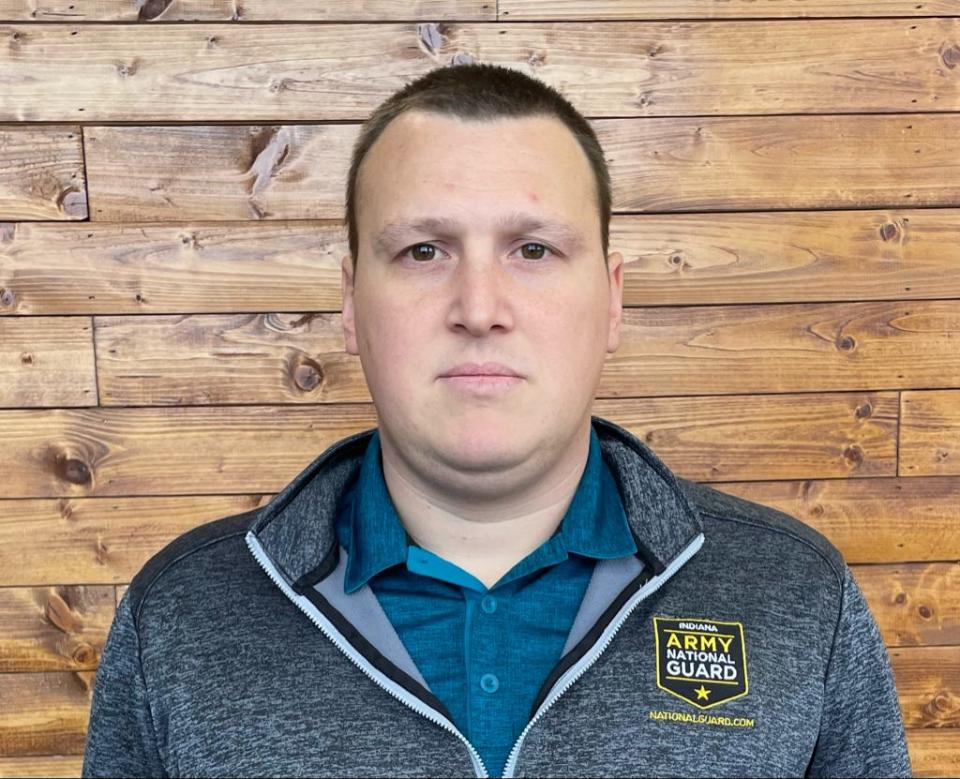Parole in Place program: how families of U.S. military personnel can obtain citizenship

Area recruiters are looking to entice people to take advantage of a little known benefit of joining the military — the Parole in Place (PIP) program, which is offered to active and veteran U.S. military personnel.
The program protects family members from deportation while they undergo the process of adjusting their citizenship and obtaining a green card.
According to the Citizen Path, “the parole in place policy aims to prevent the separation of military families by allowing certain family members to remain in the United States.” It applies to spouses, parents and children of an activity duty member of the US armed forces, a member of the military reserves or a veteran of the U.S. military.
Michigan City Coast Guard: U.S. Coast Guard plans to make Michigan City station a part-time, weekends-only facility
The program is promoted and utilized through military recruitment sites around the South Bend area and, for some people who seek to be recruited, it's the sole reason for joining the military.

"We have a pretty big Hispanic population in some of our recruitable areas, and my personal opinion … a lot of my Hispanic friends, they have a very tight knit relationship with their family," Staff Sgt. Kyle Stethem says. "They are very family oriented, and I know a lot of their concerns if they have parents here who are undocumented, they have their fear in the back of their head."
“If this is going to help people stay together, then why would we not use it?” Sgt. 1st Class Michael Cole says. “Hopefully, it gets out there in the community where people can learn about it. Maybe they’ve thought about service and maybe this is just a little bit of a push to be like, ‘Yeah, I’m going to service for three years just to help get my parents citizenship.’”
Local recruiters — Cole, Stethem and Sgt. 1st Class Patrick Dobson — speak of success stories with the Parole in Place program. For example, they recall one soldier who spoke out publicly about how they “had a father that was detained at the border while they were in basic training and they were able to have him released back to Indiana and safeguard him.”
The philosophy of the program is to support the mental health of U.S. soldiers, particularly when they are on active duty. According to Citizen Path, becoming separated from family members due to immigration status and subsequent detention and deportation “can create stress and anxiety that adversely affects military preparedness.”
To area recruiters, it is a win-win situation where soldiers can serve their country through the military and support their families with the help of that military.
“Anything we can do to be positive and help people out is a plus for us because it is going to get more people in boots to serve in the military and it is going to give back to those people that are dedicating their lives and their service to our country” Stethem says.
How the Process Works
In many cases, undocumented immigrants will have to return to their home country for what is known as "consular processing" in order to obtain a green card, and their initial unlawful presence will cause a 3-10 year ban on re-entry. The Parole in Place program grants those family members that have come to the United States unlawfully “evidence of lawful entry” through the I-94 arrival/departure record. With this adjusted entry status, the family members can then apply for a green card.
On Immigration: Immigrants make up bulk of South Bend-Elkhart region's recent population growth, data shows
The Parole in Place program grants authorization for one year, during which time the family members will seek to adjust their status.

“It is pretty quick, surprisingly,” Cole says, “I’ve had two or three of my soldiers go through it with their mom and their dad and they were able to get it within the year.”
The Parole in Place program does not, however, bypass all immigration requirements. Although it readjusts a person’s entry status, it will not clear them of other grounds for inadmissibility. For example, a person who has been convicted of a drug-related offense, drug trafficking, prostitution, human trafficking, money laundering or a crime involving moral turpitude would be inadmissible for entry. There are also restrictions on those who tested positive for certain communicable diseases, as well as vaccination requirements for entry.
For more information on how to obtain a green card through the parole in place program, visit https://citizenpath.com/parole-in-place/.
This article originally appeared on South Bend Tribune: Parole in Place promoted by South Bend-area military recruitment sites

